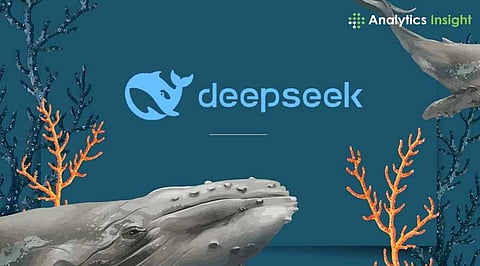

Artificial intelligence has reshaped workflows across industries and has become integral to modern life. However, access to cutting-edge AI models has traditionally been restricted to large corporations with substantial resources, creating a significant divide between those who can afford advanced AI and those who cannot.
Open-source AI models like DeepSeek-R1 are addressing this issue, promoting the democratization of AI. By making sophisticated AI technology available to individuals, small businesses, and underfunded organizations, these initiatives are fostering innovation and inclusivity on a global scale.
Open-source innovation has been a foundation of development in the tech business for some time. Unlike restrictive programming, open-source models are freely accessible, permitting designers to see, adjust, and convey the hidden code. This straightforwardness energizes coordinated effort and tackles issues quicker by utilizing aggregate information from local areas worldwide.
With regards to AI, open-source models give an option in contrast to closed, business-man-made intelligence frameworks. They enable specialists, engineers, and associations by eliminating the monetary and specialized hindrances frequently connected with restrictive artificial intelligence arrangements. DeepSeek-R1 represents this development by offering a cutting-edge simulated intelligence model that anybody can get to, change, and send for different applications.
DeepSeek-R1 is not just a model; it represents a shift in the approach to creating and sharing computer-based intelligence. Its design is intended to be flexible, making it suitable for a wide range of applications, from natural language processing to data analysis. As an open-source platform, it allows users to customize the model to meet their specific needs without the constraints of licensing fees or restrictive terms of use.
This openness promotes innovation at all levels. Startups can utilize pSeek-R1 to develop affordable AI-driven products. Researchers in underfunded institutions can experiment with advanced algorithms without the burden of costly software licenses. Even non-profit organizations can leverage artificial intelligence to tackle social challenges, such as improving healthcare in remote areas or enhancing disaster response systems.
The democratization of simulated intelligence has sweeping ramifications for innovation and society.
Open-source models like DeepSeek-R1 bring a few key advantages:
Open-source artificial intelligence takes out the monetary obstructions related to business models. By making state-of-the-art innovation uninhibitedly accessible, it guarantees that computer-based intelligence isn't restricted to well-off associations but is open to anybody with the abilities and interest to utilize it.
Coordinated effort is a strong driver of progress. Open-source models urge designers overall to add to and enhance existing advancements. This aggregate exertion prompts quicker headways and clever fixes that probably wouldn't have been imaginable in a shut framework.
Exclusive artificial intelligence models are frequently scrutinized for being murky, which can prompt predispositions in navigation. Open-source models, then again, take into account more prominent straightforwardness and examination. The open idea of models like DeepSeek-R1 guarantees that inclinations can be recognized and tended to by a different local area of clients.
Open-source artificial intelligence empowers underrepresented gatherings to take part in mechanical turn of events. This inclusivity guarantees that computer-based intelligence apparatuses are planned in light of assorted points of view, prompting more fair results.
Despite its true capacity, the democratization of artificial intelligence isn't without challenges. Open-source models require critical computational assets for preparation and organization, which can, in any case, be a hindrance for specific clients. Furthermore, guaranteeing the moral utilization of open-source man-made intelligence remains a worry, as these devices can be abused for malevolent purposes.
To address these difficulties, the local region around open-source man-made intelligence should prioritize collaboration and moral principles. Legislators, technology groups, and research organizations may also help by providing funding and support for open-source initiatives. Drives that provide access to adequate distributed computing resources can also reduce barriers to entry, allowing more people to apply artificial intelligence for good.
Open-source artificial intelligence models like DeepSeek-R1 are changing the scene of computerized reasoning by making it more available, straightforward, and comprehensive. These models separate conventional hindrances, empowering people and associations to bridge computer-based intelligence's force without requiring huge monetary ventures.
As open-source development keeps on developing, the fate of computer-based intelligence looks more brilliant and more fair. By encouraging development and inclusivity, models like DeepSeek-R1 are preparing for an existence where innovation genuinely serves everybody.
